Product pictures
| Amount Per 2 oz, 56 g | |||
| Calories | 100 Kcal (419 kJ) | ||
| Calories from fat | 54 Kcal | ||
| % Daily Value* | |||
| Total Fat | 6g | 9% | |
|---|---|---|---|
| Saturated Fat | 1.5g | 8% | |
| Cholesterol | 40mg | 13% | |
| Sodium | 600mg | 25% | |
| Total Carbs | 4g | 1% | |
| Sugars | 2g | 8% | |
| Protein | 9g | 18% | |
| Iron | 0.3mg | 2% | |
* Percent Daily Values are based on a 2000 calorie diet. Your daily values may be higher or lower depending on your calorie needs.
Find out how many calories should you eat.
Ingredients And Nutrition Overview
Best
choice Good
choice Poor
choice Avoid
it!
choice Good
choice Poor
choice Avoid
it!
-
WeightWatchers Points: 2.5, PointsPlus: 3, SmartPoints: 3
WeightWatchers Points are estimated by carbohydrates, fats, protein and fiber in product. They are not an affirmation of better quality or nutritional value of the product or its manufacturer. Only way to count for dieters. Less points are better.
Read more at Weight watchers diet review -
Keep an eye on the cholesterol.
Today cholesterol is no longer a villain. The 2010's USDA guidelines told us to limit cholesterol from foods
Now experts say cholesterol is "not a nutrient of concern" because cholesterol from foods doesn't cause higher blood cholesterol levels.
Nevertheless try to consume no more than 300 milligrams daily.
This product contains more than 13% of your daily cholesterol intake.
If you still are on a low cholesterol diet, please keep in mind:
- nutritionists are not recommending you go out and binge on cheeseburgers and fries.
- 10% of your daily allowance can quickly become 50% when a hamburger turns into double cheeseburger.
-
Want to lower the cholesterol intake? Here are some advices:
- Try to limit your cheese, dairy and meat intake to one item per meal.
- Avoid meals with multiple sources of cholesterol (chicken with cheese, junk food)
- Try to indclude in your diet low- or nonfat dairy, seafood, legumes and nuts.
- Choose water instead of milk for your coffee.
-
Salty! Has over 25% of the daily sodium max
The average American consumes 5,000 mg of sodium daily — twice the recommended amount amount of 2400mg for healthy adults, this is 1 teaspoon of salt.
For medical reasons many people should not exceed 1500mg of sodium.
Surprisingly, you're responsible for only 15% of the sodium in your diet the bigger part - 75% of the sodium that you consume each day comes from processed foods, not home cooking or the salt shaker.
Excess sodium intake increases the risk of high blood pressure, hypernatremia, hypertension, cardiovascular disease and other heart problems.
Are these reasons enough to cut the sodium intake? No doubt! -
Convert Salt tsps to Sodium mg easily
Salt (NaCl) is not excactly sodium (Na).
It is not right to use these terms as synonyms.
The FDA recommended limit of sodium is 2,300 mg per day (or even less - about 1500 mg while one is on low sodium diets).
This is much less than the weight of salt.
(5,750 mg per day or 3,750 mg for low sodium diet) and not so convenient to calculate.
Know how much sodium is in your salt - without a calculator:
1/4 tsp salt = 600 mg sodium
1/2 tsp salt = 1200 mg sodium
3/4 tsp salt = 1800 mg sodium
1 tsp salt = 2300 mg sodium -
Great! Contains less than 1.5 tsp of sugar.
Great! Contains less than 1.5 tsp of sugar per serving!
-
Sodium erythorbate, will it keep you safe?
It's a new type of additive and is a synthetic variation of ascorbic acid - Vitamin C.
It is used to keep a wide variety of foods fresh - from meats and canned fruits and vegetables to wines, jams and soft drinks.
During the process of cooking or digestion of certain processed meats, nitrites in them combine with naturally present amines and form carcinogenic N-nitroso compounds, which are associated with cancer.
Sodium erythorbate (or ascorbic acid) helps to prevent the formation of these cancer-causing chemicals. -
Contains nitrites/nitrates
This product contains one or more of the following: - Sodium nitrite - Sodium nitrate - celery powder Sodium nitrite and its closely related sodium nitrate are food preservatives used primarily in prepared meat and fish such as ham, bacon, hot dogs, corned beef (spam), luncheon meats, and smoked fish. They help the meat look nice and red instead of grayish. Unfortunately, when cooked or broken down in the stomach, nitrites form nitrosamines (also called N-Nitroso Compound), which can cause cancer in young children and pregnant women. Sources: ----------- S C Larsson, A Wolk - Red and processed meat consumption and risk of pancreatic cancer: meta-analysis of prospective studies Br J Cancer. 2012; 106(3): 603–607. Risch HA, Jain M, Choi NW, Fodor JG, Pfeiffer CJ, Howe GR, Harrison LW, Craib KJ, Miller AB. - Dietary factors and the incidence of cancer of the stomach. Am J Epidemiol. 1985;122(6):947-59. Ji BT, Chow WH, Gridley G, Mclaughlin JK, Dai Q, Wacholder S, Hatch MC, Gao YT, Fraumeni JF Jr. - Dietary factors and the risk of pancreatic cancer: a case-control study in Shanghai China. Cancer Epidemiol Biomarkers Prev. 1995;4(8):885-93. Nöthlings U, Wilkens LR, Murphy SP, Hankin JH, Henderson BE, Kolonel LN. - Meat and fat intake as risk factors for pancreatic cancer: the multiethnic cohort study. J Natl Cancer Inst. 2005;97(19):1458-65. Aschebrook-Kilfoy B, Cross AJ, Stolzenberg-Solomon RZ, Schatzkin A, Hollenbeck AR, Sinha R, Ward MH. - Pancreatic cancer and exposure to dietary nitrate and nitrite in the NIH-AARP Diet and Health Study. Am J Epidemiol. 2011;174(3):305-15. Preston-Martin S, Pogoda JM, Mueller BA, Holly EA, Lijinsky W, Davis RL. - Maternal consumption of cured meats and vitamins in relation to pediatric brain tumors. Cancer Epidemiol Biomarkers Prev. 1996;5(8):599-605. Knekt P, Järvinen R, Dich J, Hakulinen T. Knekt P, Jarvinen R, Dich J, Hakulinen T. - Risk of colorectal and other gastro-intestinal cancers after exposure to nitrate, nitrite and N-nitroso compounds: a follow-up study. Int J Cancer. 1999;80:852–856. Zhu Y, Wang PP, Zhao J, Green R, Sun Z, Roebothan B, Squires J, Buehler S, Dicks E, Zhao J, Cotterchio M, Campbell PT, Jain M, Parfrey PS, Mclaughlin JR. - Dietary N-nitroso compounds and risk of colorectal cancer: a case-control study in Newfoundland and Labrador and Ontario, Canada. Br J Nutr. 2014;111(6):1109-17.
-
For dieters: FoodPoints value is 3
* FoodPoints are calculated by Fooducate based on fats, carbs, fiber, and protein. They are not an endorsement or approval of the product or its manufacturer. The fewer points - the better.
-
Highly Processed!
This product is highly processed. If you'll take a look at its ingredient list, you'll discover new words to add to your vocabulary. Many of theses ingredients are required to increase the shelf life of the product and improve the flavor that disappears when food is not fresh.
-
Learn about corn syrup, found here
Corn syrup is often used as a sweetener in processed food. It is NOT THE SAME as high fructose corn syrup. Don't be fooled when looking up the amount of sugar a product contains if corn syrup is listed as an ingredient. This is because corn syrup contains 50% sugar, and 50% of another form of carbohydrate known as ""oligosaccharides"", which is pretty close to sugar. If a product has less sugar than you think it should, but contains corn syrup in the ingredient list, you'll know that the missing carbs are those oligosaccharides, not much better.
-
Natural flavors added. Learn why
Companies add flavorings to make products taste better. They are created in a lab and the formulations are guarded as trade secrets. Flavorings can compensate for flavor loss during processing, substitute for ingredients, lower production costs and increase shelf stability. Natural flavorings are more expensive to source than artificial flavors, but tend to be better received by consumers. People sensitive to MSG, vegans, vegetarians and those with allergies should pay special attention to the phrase "natural flavorings" since glutamates, animal products or allergens may be the source of natural flavors. You can always contact the manufacturer for more information.
Allergens
Corn Allergy
You Might Also Like
% RDI of Main Nutrition Facts
5%
of RDI* (100 calories) 56 g
-
Cal: 5 %
-
Fat: 9.2 %
-
Carb: 1.3 %
-
Prot: 18 %
-
0%25%75%RDI norm*
Calories Breakdown
- Carbs (15.1%)
- Fat (50.9%)
- Protein (34%)
Get Your Recipe of Health!
Follow RecipeOfHealth on Facebook!

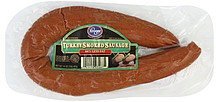

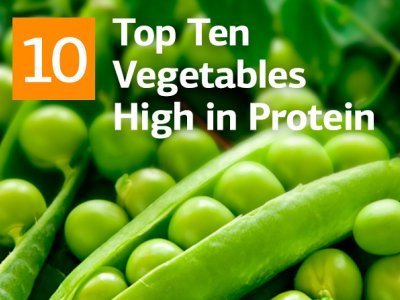

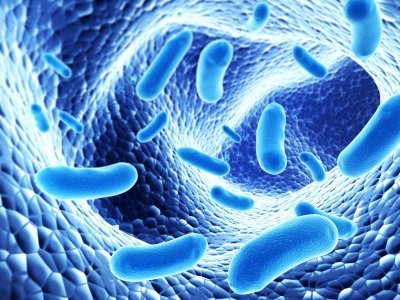








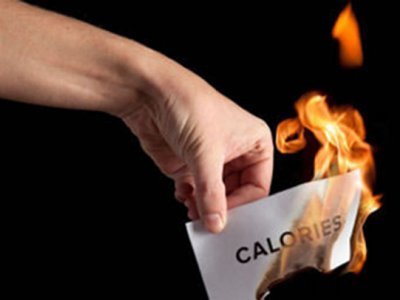
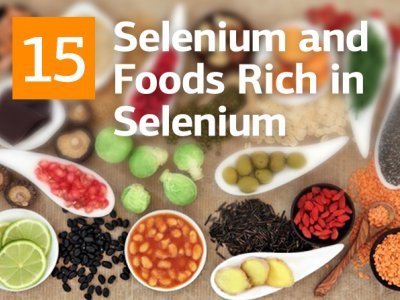
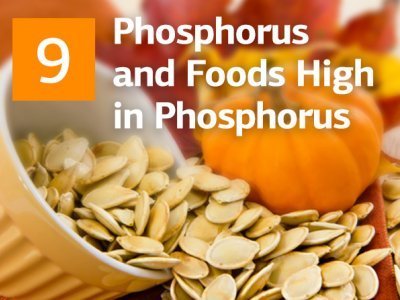
Add your comment